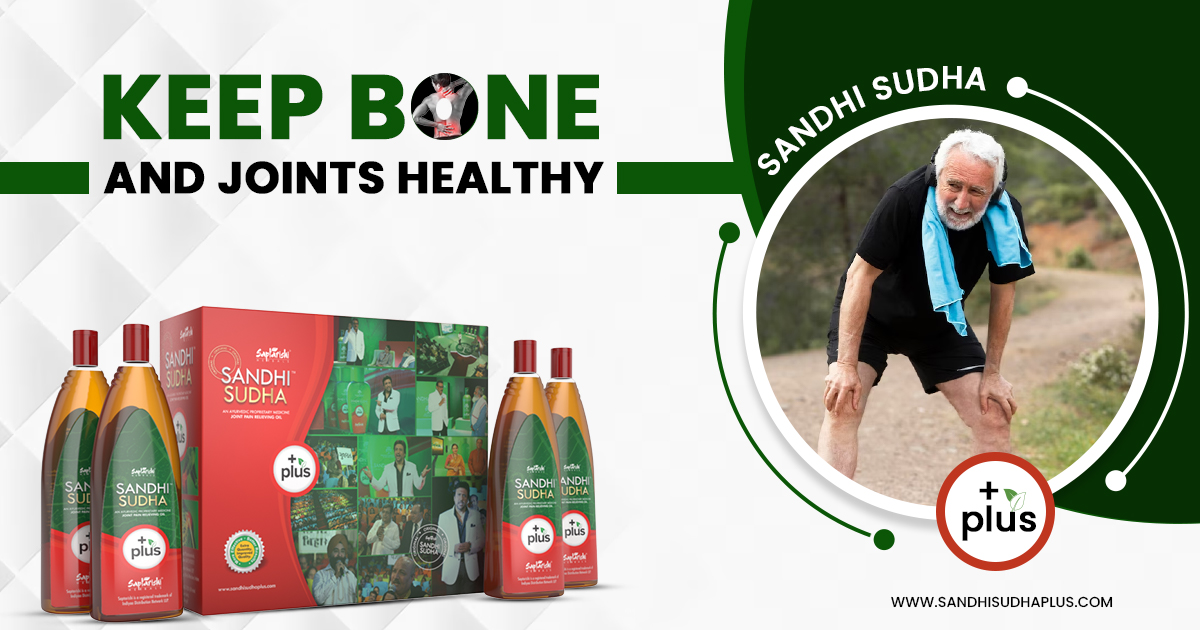 9111006691
9111006691
 9111006691
9111006691


Bones endow shape and support to the body. It facilitates movements, protects vital organs, stores and releases minerals and fats.
Strong bones are essential for a healthy life. In the earlier years of life, it is easier to take care of bones. Bones change constantly. It has ability to grow faster and stronger when you are young. But as you get older, bones grow slower and become weaker.
It's essential to build strong and healthy bones during infanthood and adolescence by adopting a bone-healthy lifestyle. Healthy bones help you in physical activities of daily life as well as sports and leisurely activities.
To know about the importance of bone and joint health and ways to reduce joint pain and restore your mobility continue reading this article.
Healthy bones provide a structure to the body, help in mobility, anchor muscles, protect internal organs and serves as a storage house for essential minerals needed for the body. Proper care of your bone health can prevent or slowdown bone loss.
Bone loss may lead to several bone-related problems such as low bone density, osteoarthritis, osteoporosis etc. Osteoporosis is an ailment that makes the bones weak and fragile. More bone mass you gain by the time you reach your adulthood, the more will be your chance of having healthy bones during your advanced age.
Throughout life, bones change their shape, size and position. These happen under modelling and remodelling process. When a bone is formed at one site and is broken down in different sites, its shape and position changes, this is known as modelling. The cellular activity in a bone that consist of replacement and removal at the same site is known as remodelling.
There are numerous factors that affect bone and joint health
Low level of calcium: Inadequate or lack of calcium and vitamin D in diet may lead to bone weakness.
Physical activity: Regular exercises and physical activity is essential for bone health, absence of which causes weakness of your bones.
Smoking and Alcohol: Toxic substances like cigarette and alcohol also may increase the risk of bone loss.
Certain Disorders: The patients with some conditions like eating disorder such as bulimia or anorexia, Crohn's disease, celiac disease, Cushing disease, or those who have undergone gastric surgery, hysterectomy, or bariatric surgery for weight loss are at higher risk of bone loss.
Genetics: People with certain genetic markers have a higher risk of bone disorders that are genetic. Many autoimmune diseases like rheumatoid arthritis have genetic basis. Some ethnic groups have relatively stronger bones compared to other ethnic groups.
Age: The strength of your bones decreases with age. The old age people are more prone to develop bone diseases.
Hormones: Estrogen is vital regulator of bone metabolism in men and women. Women are more likely to develop bone problems as they reach menopause. Thyroid hormones increase the production of body cells including bone cells.
Body size: Thin and underweight people are more likely to have weaker bones. Body weight has a direct relationship with bone mineral density. BMD and frame size predict future bone health.
Several nutrients support to maintain healthy bones, in particular, calcium, vitamin D, and vitamin K.
Here are a few simple steps to prevent or reduce bone loss.
Diet and physical activities are essential to bone health. In addition, bone needs essential nutrients to build bone tissues. Appropriate bone care is crucial whether you are young, adolescent, middle-aged or elderly. For that you don't have to seek out for out-of-ordinary food to maintain a diet that promotes bone and joint health.
Even after taking care, if you still have joint and bone pain, we recommend Sandhi Sudha Plus. A single solution for multiple musculoskeletal issues. It is an easier and faster way to relieve knee, neck, back, shoulders and hip joint pain. An ayurvedic remedy with no side effects.
Sandhi Sudha Plus is a joint pain relief oil that is a combination of rare herbs prepared with Ayurvedic Tail Pak Vidhi, an ancient method of preparing medicinal oil. It is safe and easy to apply. It is remarkably effective and provides relief instantly.
Following the simple steps, described above, can help you prevent bone loss and having healthy bone and joints.
